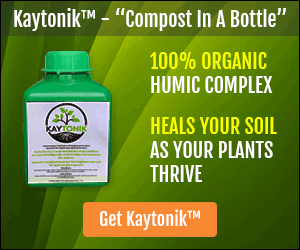I have grown to have a special appreciation for soil. My hope is that you will too.
It’s a precious commodity worth protecting, so naturally we need to advocate for its awareness. Today we have more organizations and scholarly explanations dedicated to soil preservation, which is good, but is it enough to help? Our soil is dear to us, and we need your soil consciousness too.
Each spring we take the pressure washer to wash down the winter residue from our homes. Hello Spring Cleaning! This year while cleaning the side of the house my husband noticed the patio stain pealing off in sheets. Of course, he didn’t stop until the wood was completely stripped.
Particles of the wood stain lay in my beloved flower beds. I was mortified! My first reaction was the possible harm to my soil, as I rationalized the soil biology may choke on this stuff. Who knows what potential chemicals could infect her? I carefully started to remove the wood stain particles by hand, and then gently sweep away the intruders with the mini hand rake.
Soil mindfulness is when you consider how hard and long nature needs to work to develop good soil. The thought of damaging the perfect living entities deep within soil deeply concerned me.
Some of the old weather-beaten wood planks, laying undisturbed for several years, needed to be replaced. I was amazed to see healthy soil developing between them. Organic matter such as dog hair, bits of grass, and wind-swept plant leaves was broken down to produce soil. What an amazing transformation? Is this what some refer to as virgin “dirt”?
Evidently, when left undisturbed, living matter will break down over time to produce fertile soil. This is the structure of the natural world, and it ought to be respected for our future generations, because you reap what you sow. Be cautions regarding tillage. Depending on our actions we’ll either have plenty or barren dust bowl soil.
In 1940 Edward Faulkner authored “Ploughman’s Folly”, that observes the harmfulness of tillage. We have many soil conservationist and scientist today imploring us to be mindful of tillage, as it disrupts the course of action imperative for good soil to materialize for crop growth.
When soil is undisturbed, left to rest (fallow), the biological matter forms to create fertile ground conducive to crops and plants. This improves the farmers bottom dollar. Better crops equate with improved productions, saving on operation expense, which promote profits in the long run. This is a win – win situation for soil and our health.
Imagine your home for a moment. It took you time to build it, furnish it, get all your rooms just so, it’s the roots for your family. Then a storm comes to blow everything away. You may rebuild from scratch, but no insurance in the world can compensate for the precious items of great value, now lost forever.
The Earth’s soil is like that. Over ploughing the soil for crops disturbs the soil bed. You’ve interrupted soils natural process, which is the home to million of good bacteria, fungi, protozoa, nematodes, earthworms, and many more microscopic entities of value, that all work cohesively to produce quality soil for everyone.
Tillage will dry soil if you’re attempting to aerate the top layer to facilitate crops. The issue is when industrial strength machinery digs in “several feet” for commercial crops, it compacts the lower soil layer killing it off. This therefore causes the gradual loss of soil, by reducing the microbe’s populations of helpful earthworms, ants, nematodes, and good bacteria required to build healthy soil.
When soil cannot retain moisture, it causes run-off flowing into unwanted areas like rivers and lakes causing pollution. Especially if boosted with synthetic chemical additives to grow crops, these additives flowing into the water alter the ecology of aquatic life that we eventually eat, so we will feel this effect on our health.
Crop diseases emerge in unhealthy soils. This leaves them vulnerable to failure, promoting a vicious cycle of chemical treatments leading to unhealthy food production, saturating the market with nutrient empty foods, hindering our health.
We must change our ways using unsustainable farming practices, or what will you eat? What will the animals in the forest eat? Since 1940’s soil scientists and conservationists have warned us of the pitfalls of tillage, and here we are today, scrambling to restore our priceless gem, our planet’s earth.
We must stand up and acknowledge that we cannot just pressure wash our soil into oblivion or plough it violently, expecting fresh, healthy soil at our disposal. Natures’ constitution needs to be respected if we want to bequeath it to our future generations.
Join us in our mission to encourage soil mindfulness. The very ground you walk on balances our - Soil for Humanity.















